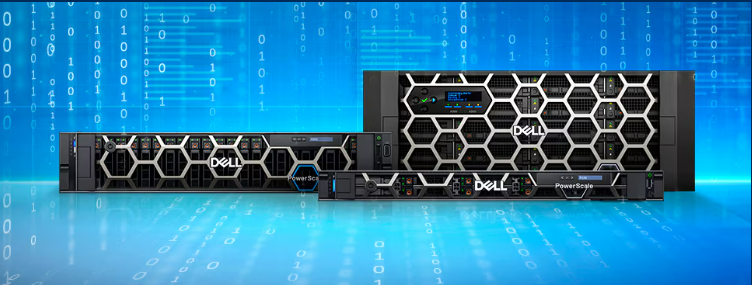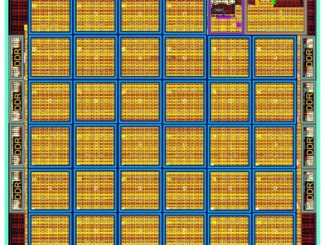
COMMISSIONED: Robust data governance is key to ethical, compliant, and efficient AI projects. Here’s why the balance between innovation and responsibility is delicate, but crucial.
In a bustling New York office, a data scientist named Emily is racing against the clock. Her team is developing an AI algorithm intended to revolutionize personalized customer experiences. The project is ambitious and promising, with the potential to drive unprecedented business growth. However, Emily has one lingering concern: data governance. Despite her excitement, she knows that without robust data governance, the project could face ethical dilemmas, compliance issues, and even data breaches. Emily’s story is not unique; it’s a reflection of the broader challenges faced by organizations today as they balance the pursuit of innovation with the responsibility of data stewardship.
Artificial Intelligence has become the cornerstone of modern innovation, driving advancements in various fields such as healthcare, finance, and entertainment. AI’s ability to process and analyze massive amounts of data allows businesses to uncover insights and make decisions that were previously unimaginable. Yet, with great power comes great responsibility. The same data that fuels AI’s capabilities also poses significant challenges in terms of governance, privacy, and ethical use.
Data governance is the framework that ensures data is managed properly throughout its lifecycle. It involves policies, procedures, and technologies that maintain data quality, security, and compliance. For AI to be truly transformative, organizations must prioritize data governance as much as they prioritize AI development.
The Importance Of Data Governance In AI
As organizations increasingly adopt AI technologies, the need for strong data governance becomes essential. Robust data governance ensures that AI systems are not only efficient and accurate but also aligned with legal and ethical standards. Here are four crucial aspects through which data governance enhances AI projects:
- Ensuring data quality: AI algorithms are only as good as the data on which they are trained. Poor-quality data leads to inaccurate models, which can result in flawed business decisions. Data governance ensures that data is accurate, complete, and reliable, providing a solid foundation for AI initiatives.
- Compliance and privacy: With stringent regulations like GDPR and CCPA, compliance is a critical aspect of data governance. AI projects must adhere to these regulations to avoid hefty fines and legal repercussions. Data governance frameworks help organizations manage consent, anonymize data, and implement robust security measures to protect sensitive information.
- Ethical AI: As AI systems become more integrated into decision-making processes, ensuring ethical use of data is paramount. Data governance provides guidelines to prevent biases, ensure fairness, and maintain transparency in AI algorithms. This not only builds trust with customers but also mitigates risks associated with unethical AI practices.
- Operational efficiency: Effective data governance streamlines data management processes, reducing redundancy and improving efficiency. This enables data scientists and analysts to focus on extracting value from data rather than dealing with data quality issues or compliance roadblocks.
PowerScale is a storage solution designed to handle massive amounts of unstructured data, making it an ideal solution for AI applications. It is also a prime example of how technology drive and reinforce strong data governance practice with features such as:
Scalability And Performance
Achieving operational efficiency includes maximizing scalability and performance. PowerScale is designed to seamlessly scale to meet the expanding data demands of AI applications while maintaining top-tier performance. Based on internal testing which compared the streaming write of the PowerScale F910 using the OneFS 9.8 distributed file system to the streaming write of the PowerScale F900 using OneFS 9.5 distributed file system, the new F910 delivers faster time to AI insights with up to a 127 percent improved streaming performance (actual results may vary). It accelerates the model checkpointing and training phases of the AI pipeline, keeping GPUs fully utilized with up to 300 PBs of storage per cluster. This ensures uninterrupted model training and prevents GPU idling, effectively accelerating the AI pipeline.
Additionally, PowerScale supports GPU Direct and RDMA (Remote Direct Memory Access) technologies, further optimizing data transfer between storage and GPUs. GPU Direct enables direct communication between GPUs and the storage system, bypassing the CPU, which reduces latency and improves throughput. RDMA enhances this by allowing data to be transferred directly between storage and GPU memory over the network, minimizing CPU involvement and further reducing bottlenecks. Together, these technologies ensure that large datasets are managed efficiently, and that data remains accessible and manageable, fostering high-quality AI development on our AI-ready data platform.
Data Security And Compliance
PowerScale integrates advanced security features, including encryption, access controls, and audit trails, to protect sensitive data and ensure regulatory compliance. With federal-grade embedded security and real-time API-integrated ransomware detection, it safeguards the entire AI process from attacks and protects your intellectual property from unauthorized access.
PowerScale also supports air-gapped environments, providing an extra layer of security by isolating critical systems from unsecured networks. This ensures that your most sensitive data is kept out of reach from external threats, significantly reducing the risk of cyberattacks. The air-gapped configuration is particularly crucial for industries with stringent compliance requirements, such as finance, healthcare, and government, where the integrity and confidentiality of data are paramount. By combining air-gapped protection with comprehensive security measures, PowerScale offers a robust solution that meets the highest standards of data security and regulatory compliance.
Data Lifecycle Management
PowerScale provides tools for managing data throughout its entire lifecycle, from creation to archiving, ensuring that data is treated according to governance policies at every stage. This includes not just storage, but also classification, retention, and deletion, which helps organizations maintain compliance with regulatory requirements. By automating these processes, PowerScale reduces the risk of human error, ensuring that data governance is applied consistently. Furthermore, it supports tiering strategies, allowing organizations to move less frequently used data to lower-cost storage while keeping critical data accessible, optimizing both cost and performance as AI workloads evolve.
Flexibility And Integration
PowerScale offers the flexibility to build your infrastructure when, where, and how you need it. Its variety of node types and software services enable right-sizing and scaling of infrastructure to match diverse workload requirements. Additionally, PowerScale seamlessly integrates with existing data management tools and workflows, including Hadoop Distributed File System (HDFS), NFS, and SMB protocols. For AI-driven workflows, it supports popular data pipeline tools like Apache Spark and TensorFlow. This broad integration capability makes it easy to fit PowerScale into existing environments, allowing data teams to leverage their current tools while gaining the scalability and performance advantages PowerScale offers.
The balance between innovation and responsibility is delicate but crucial. Organizations must foster a culture that values data governance as much as technological advancement. This involves:
- Leadership commitment: Leaders must prioritize data governance and allocate resources to develop and maintain robust frameworks. This commitment sets the tone for the entire organization and emphasizes the importance of responsible data management.
- Cross-functional collaboration: Data governance is not solely the responsibility of IT departments. It requires collaboration across all functions, including legal, compliance, and business units. This ensures that data governance policies are comprehensive and aligned with organizational goals.
- Continuous improvement: Data governance is an ongoing process that must evolve with changing regulations, technologies, and business needs. Regular reviews and updates to governance policies ensure that they remain effective and relevant.
The journey of balancing innovation and responsibility is ongoing. As AI continues to evolve and integrate into various aspects of our lives, the role of data governance becomes increasingly critical. PowerScale exemplifies how technological solutions can support this balance, providing the tools necessary to manage data effectively and responsibly.
Ultimately, it’s not just about what AI can achieve, but how it’s implemented. Organizations prioritizing data governance will be better positioned to leverage AI’s full potential while maintaining the trust and confidence of their stakeholders. Just like the example given of Emily, businesses must recognize that innovation and responsibility go hand in hand, ensuring a future where AI advancements are achieved with integrity and accountability.
Learn how Dell solutions can help you transform with AI.
Contributed by Dell Technologies.
Kelley Pargmann is senior product marketing manager for storage and AI at Dell Technologies.





Be the first to comment